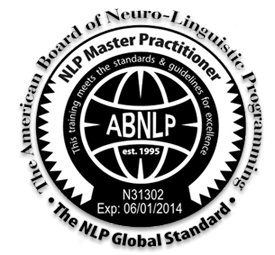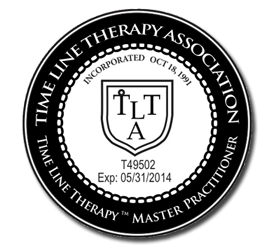44 Free NLP Resources – Everything You Need To Get Started In Neuro Linguistic Programming
Posted by Ben Webb on Jun 26, 2013 in Resources | 0 comments
When starting out in NLP, or in the early stages of your research into the subject, the various outlets of information can be overwhelming, and a lot of the time conflicting. I decided to compile this list of resources to help those find the best and most trusted resources within the vast field of NLP. The list is split into 4 sections:
- Organisations – Detailing the main regulating bodies of NLP and various schools of thought.
- Key Figures – The ‘who’s who’ of NLP including the curators of Neuro Linguistic Programming, and some of the pioneers in the field.
- Publications – A list of some of the best books and publications written on NLP
- NLP Subjects – A list of the main subject area’s of Neuro Linguistic programming. At short, a list of the type of subjects you’d typically find in an NLP Training Course, and all the areas a top quality NLP Practitioner should be knowledgeable in.
Organisations
- ABNLP – The American Board of NLP was founded in 1996 by Dr. A.M. Krasner as the Sister Organisation to the American Board of Hypnotherapy. Today they have over 500 institutes worldwide approved at the Trainer Level of NLP, and have thousands of members. The organisation has strong ties with Dr. Tad James, a pioneer in the field of NLP, creator of Time Line Therapyâ, and his company the Tad James Co. This organisation is my personal preference for association. They’re trainers are highly skilled, and they provide training in Clare Graves Values Levels, as well as Time Line Therapyâ which are extremely valuable tools to aid coaching.
- Society of NLP – The Society of NLP is Richard Bandler’s (co-creator of NLP) awarding body. After John Grinder and himself stopped training together, he has since partnered up with Paul Mckenna and John La Valle. Richard Bandler has since created his own models of coaching including his Design Human Engineeringâ and Charisma Enhancementâ seminars and workshops.
- ITANLP – The International Trainers Academy of NLP is John Grinder’s (co-creator of NLP) school of NLP. He now trains alongside Carmen Bostic St Clair and Michael Carroll. The school also train John Grinder’s model of NLP which is named New Code NLPâ
- NLPU – The NLP University is Robert Dilt’s School. Robert has been involved in the development of NLP since the beginning, and has provided many valuable models to the development in NLP, including his Sleight Of Mouth patterns.
- ANLP – Independent organisation based in the UK
You may find details of many more institutions including the Professional Guild of NLP, the National Federation of NLP, and many other new organisations are being started all the time from newly qualified Trainers and Master Trainers of NLP. From my experience, the one’s I have highlighted above have the highest quality resources, and are ran by those who have contributed the most to the field of NLP.
Key Figures
- Richard Bandler – As mentioned earlier, Richard co-created NLP back in the 70’s with John Grinder while studying at Santa Cruz University in California. His skills in Mathematics and Computer Programming were utilised when they modelled Virginia Satir and Milton Erikson to create the first models of NLP. He has since wrote many books, and recently co-created a new model of techniques named Design Human Engineeringâ
- John Grinder – The other co-creator of NLP who first met with Richard at Santa Cruz University where John was a professor of Linguistics. He now runs his own school (ITANLP) and teaches his new model – New Code NLP.
- Robert Dilts – Robert has been involved in the development of NLP since he became a student of Richard and John’s in the mid 70’s. He has wrote many books including his one on Sleight of Mouth Patterns.
- Tad James – Dr Tad James was the second person in the world to be certified as a Master Trainer of NLP. He created his own model and technique Time Line Therapyâ which is extremely effective at helping people let go of negative emotions and limiting beliefs.
- Steve Andreas – Steve has contributed many great works, books and models to the field of NLP, especially in the area’s of sub-modalities. He works with his wife Connirae and runs his publishing site Real People Press.
- Judith Delozier – Judith has been a trainer and co-developer of NLP since the mid 70’s, and was a member of Richard and Johns first group of students. She contributed to many of the early techniques in NLP.
- David Gordon – Another member of the original study group, David was one of the first to add ‘Metaphors’ to the NLP study, while modelling Milton Eriksson’s approach to story telling in his therapeutic interventions. David has also invested a lot of time into the study of Modelling behaviour, and has written a great book on the subject named ‘Expanding Your World’.
- Leslie Lebeau (Cameron Bandler) – Leslie helped develop NLP’s Meta Programs and personality profiling, alongside writing many books.
- Mark and Nicky Taylor (OPT2XL) – Mark and Nicky are quickly becoming recognised as the ‘go-to’ trainers of NLP in the Midlands UK. Having trained under Tad James and the ABNLP mindset, their knowledge and quality of training is second to none. They train small groups so all of their participants get the highest quality of training.
Publications – A few top books and resources from the field of NLP
- Structure of Magic 1 & 2 – Written by Richard Bandler and John Grinder, these were the first publications of the Meta Model, highlighting their work modelling Virginia Satir, the famous Family Therapist.
- Patterns of the Hypnotic Techniques of Milton. H. Erikson volumes 1 & 2 – Patterns out the Milton Model, and early workings of NLP when Bandler and Grinder Modelled Milton Erikson.
- Reframing – Written by Bandler and Grinder detailing the NLP technique of Reframing.
- Frogs into Prince’s – Early transcripts of Bandler and Grinder’s seminars.
- Trance-formations – Early details of Hypnosis in NLP by Bandler and Grinder.
- Using Your Brain For A Change – Written by Bandler, is one of the first publications on the use of sub-modalities.
- NLP Volume 1 – Book by Robert Dilts, Bandler, Grinder and Judith Delozier. Introduces NLP Strategies.
- Sleight Of Mouth – Robert Dilt’s book on his Sleight Of Mouth patterns with an insight to his verbal reframes and the structure of beliefs. Great book that puts a lot of the aspects of NLP together.
- Time Line Therapyâ and the basis of personality – Written by Tad James, it introduces his technique of Time Line Therapyâ alongside insights into Meta Programs, Beliefs, and Values.
- Magic Of NLP Demystified – Great book by Frank Pucelik and Byron Lewis. Nice introduction to NLP and the Meta Model.
- Spiral Dynamics – This is not NLP as such, although the ABNLP school of thought now incorporates Clare Graves Values Levels into their Master Practitioner Training Courses. This is an extremely valuable tool for coaching individuals, corporations, or societies through change, and the model gives great insight into where people’s thinking is at, at what drives them.
- Flow: The Psychology of Happiness – Written by Mihaly Csikszentmihalyi, the ideas and concepts laid out in this book are utilised a lot in some principles of NLP, including the NLP communication model.
- Quantum Healing – This extraordinary book written by Dr Deepak Chopra details the mind-body connection. It’s principles underlies a lot of NLP study.
NLP Subjects – Some of the main subject area’s within the study of NLP
- Presuppositions of NLP – Principles and foundations of NLP.
- Rapport – Mirroring and matching someone’s physiology and behaviour.
- Goal Setting – Includes principles for success and well-formedness conditions.
- Representational Systems – Finding out how people process information, whether they are more visual, auditory (sounds), or kinaesthetic (feelings).
- Submodalities – The finer distinctions of your internal representations, and how they can affect your behaviour.
- Language Patterns – Including reframes
- Anchoring – Comes from the bases of conditioning, similar to the work of Pavlov and his dogs.
- Strategies – The sequence of our internal representations, and the basis of how we achieve things.
- Parts Integration – The process of obtaining internal congruence.
- Time Line Therapyâ – A process of releasing negative emotions, limiting beliefs, and creating goals.
- NLP and Quantum Physics – How the principles of quantum physics affect change and our language.
- Sleight of Mouth Patterns – A series of verbal reframes which can influence conversational belief change.
- Meta-Programs – Personality Profiling
- Personal Values – Elliciting and utilising a persons values.
- Clare Graves Values Levels – A basis of determining the main drivers in a person’s/organisations/societies life.
- Prime Concerns – Working with someone to resolve a deep unconscious need, which is not being met.
- Modelling – Exploring how someone else does what they do.
For more specific information on these subjects, you can visit OPT2XL’s website here who provide world-class trainings in NLP, Hypnotherapy, and Time Line Therapy®.
Ben Webb
Latest posts by Ben Webb (see all)
- NLP Coaching and Hypnotherapy in the West Midlands | Birmingham | Stourbridge | Kinver - November 15, 2013
- How To Make The Best Decision Of Your Life - October 22, 2013
- How To Talk Yourself Over Stage Fright – The Power Of Language - July 5, 2013





